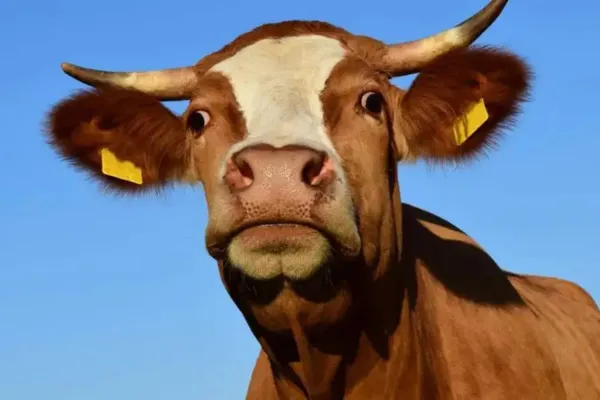
Polled vs Horned Cattle
It makes a big difference whether you buy polled (naturally hornless) or horned cattle. Your decision impacts animal welfare, safety of you and your animals and more. Here’s why choosing polled cattle is the better option, particularly for lifestyle farmers.
What Are Polled Cattle?
Polled cattle are animals naturally born without horns due to a dominant gene.
What’s wrong with horns?
Horns can cause significant issues for you, your animals, and anyone else handling them like vets. Here are the main concerns:
Safety Risks
Horned cattle can injure handlers, other livestock, and themselves. Even small or tipped horns can cause serious harm due to the size of cattle.
Farmers who don’t have good handling facilities are particularly at risk.
Financial implications
If you’re selling your cattle to the works, horns lead to carcass bruising during transport or yarding, lowering meat quality so you get a lower return.
If you're selling to other farmers, they will be less likely to want horned cattle.
Cattle hides can be damaged so can’t be used for leather production.
Horned cattle are more likely to damage fences, yards, and equipment.
Legal Requirements for Dehorning and Disbudding
New Zealand law mandates the use of local anaesthetic when dehorning or disbudding cattle, regardless of their age or herd size.
Non-compliance with these regulations can result in criminal prosecution, fines, and a criminal record.
Farmers must be experienced to carry out dehorning and disbudding or rely on vets or other experts, increasing the cost of managing horned cattle.
Welfare Concerns
Dehorning and disbudding are painful procedures, even when done with pain relief, and can cause significant stress to the animal.
Improperly dehorned cattle can experience horn regrowth, meaning you have to try again or live with horns.
The Case for Polled Cattle
Safety
Polled cattle eliminate horn-related injuries to humans and other animals, making them easier and safer to handle.
When horned cattle are confined in close contact, for example in yards or being transported, they can seriously injure other cattle.
Compliance
By choosing polled cattle, you completely avoid the need for dehorning or disbudding, so you don’t have to worry about complying with dehorning regulations.
Finances
Avoiding dehorning eliminates associated veterinary fees and reduces potential damage to infrastructure, saving time and money.
Breeding
The polled gene is dominant, meaning breeding polled cattle with horned cattle will typically produce hornless offspring.
Using homozygous polled bulls (PP) ensures 100% polled calves, regardless of the cow’s genetics, offering a permanent solution to horn management.
Marketing your cattle
Meat processors and buyers often prefer polled cattle due to reduced risks of carcass damage and smoother handling.
Managing Horned Cattle
If you choose to keep horned cattle, you are not legally required to remove their horns, but you must manage them responsibly. This means:
Providing Adequate Space
Horned cattle need sufficient space to prevent them from injuring one another, particularly during transport or in confined yards.
Handling Facilities
Strong, well-designed yards and crushes are essential to safely handle horned cattle. A poorly restrained horned animal poses a danger to handlers and itself.
Transport Considerations
While New Zealand law does not explicitly require the separation of horned animals during transport, regulations mandate that animals must not be transported in a way that could cause injury. In practice, this often means separating horned animals from others to ensure safety.
Monitoring Horn Growth:
Horns can grow into the head or eyes if not monitored. Regular checks are crucial to prevent welfare issues.
While manageable, these extra responsibilities make horned cattle less practical for many lifestyle farmers.
Why It Matters
For all farmers, managing cattle safely and efficiently is paramount. If you don’t have handling facilities like strong head bails and crushes, farming horned cattle is particularly risky. On top of that, the strict legal and ethical obligations around managing horns and dehorning add cost and stress to managing horned cattle.
Choosing polled cattle simplifies animal management, is in line with best animal welfare practices, and eliminates the legal obligations associated with dehorning.
It absolutely matters whether you buy polled or horned cattle. Polled cattle are a humane, cost-effective, and sustainable solution, while horned cattle come with unnecessary challenges in safety, compliance, and management.
Want to know more?
Understand how cattle see the world
For a deep-dive, enroll on our What You Need to Know to Keep Cattle and Cattle Breeding online courses.

